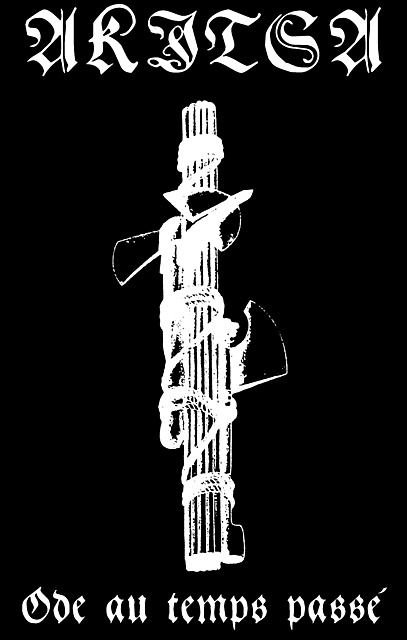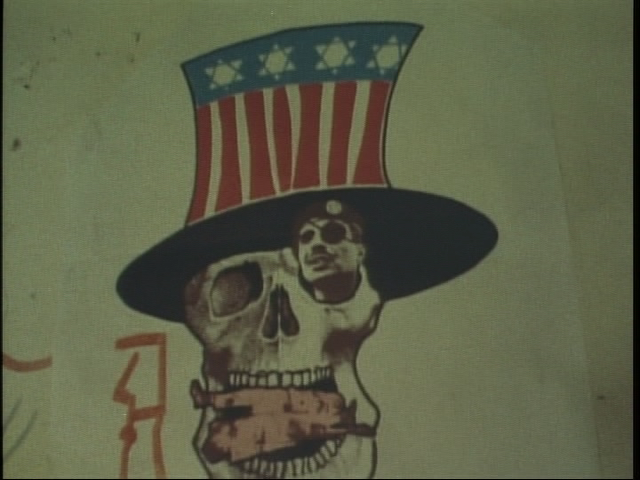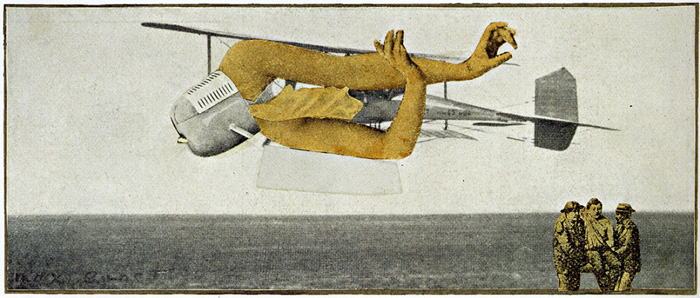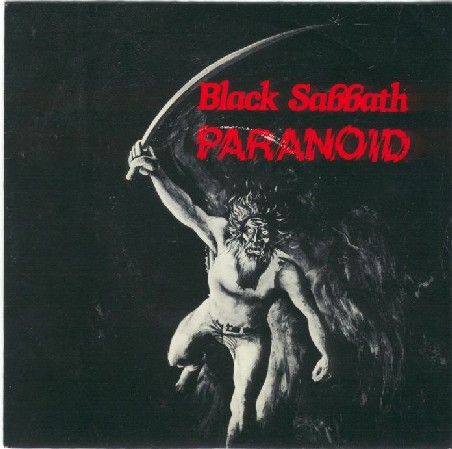[unfortunately couldn't make the black gathering of Hideous Gnosis, but I was present in absentia. Here's my contribution...]
At its raspy start, black metal begins with the obscene purity of the end: with
Pure Fucking Armageddon, the title of Mayhem’s first demo from 1986. Of course, black metal never really begins. It’s always been out of time, eternally out of joint with a world it hates, even as it cannot leave that world behind. But if we take one among many points of departure, it may as well be this one, from the good old dark days, a declaration of where to go from there. The name itself is a founding gesture, and we take it as such, as a formal template and an injunction to be fulfilled: black metal will be pure fucking Armageddon. Or, to specify, it will operate beneath that constitutive fantasy, and it will be constituted by how it keeps reproducing its distance from such a fantasy. That is, it promises itself as pure and as Armageddon, even as it dismantles any possibility of ever being either. Rather, it is impure fucking apocalypse. (As for the fucking issue, that remains spot-on and relatively uncomplicated. To follow Sargeist, it’s the difference between “black murder” and “Black Fucking Murder.” It is one of BM’s great modifiers, endlessly recombined to specify the blackness and metalness of things, ranking up there with necro, grim, dark, cold, Northern, pestilent, Satanic, and in certain periods, Carpathian and Transylvanian.) Above all, black metal is war. It is fought under the banner of a desired final war to come: the striving march from impure apocalypse of the present to the pure Armageddon of the end. To leave behind the messiness and imprecision of the Now, not by dreaming about the future but through a constant return to buried antagonisms (i.e. Satan’s alternate history of the world, flammable churches, pagan knowledge, ancestral legacies). To become a fierce and directed manifestation of shared hatred toward the assumed positivity of what the order of the day is (i.e. Christianity, liberal democracy, multi-nationalism, warm weather, false metal). And above all, to know finally, once and for all, what the hell to do with that hellish hatred of the present.

What is the difference between apocalypse and Armageddon? Apocalypse is a mode of vision, a process, a revelation of what is hidden, of the unclear, of the undifferentiated. To be properly black metal about it all, if the veil is lifted, the revelation is of the cursed impure that could not be grasped in this rational order. A black sun casts different light, and the growing shadows reveal only what has been hidden in plain sight all along. Consequently, apocalypse is not the end but the beginning of the end. In revealing the hidden, it starts the process of resorting, reorienting, struggling through the mess of what has been shown and now won’t go away. The apocalypse leads to the post-apocalypse. Contrary to this, Armageddon is the site of the terminal end. It is not the end itself (not the eschaton), but the battlefield on which the final confrontation will be fought between the differentiated enemies, now clear and “pure” in their opposition.
What does this have to do with black metal, or with Mayhem’s demo title as a founding gesture? It is to think of black metal as a battlefield from the start, as a phenomenal working through of that imagined site, that promised zone of contestation where the contemporary world is swept away to confront the old antagonisms. But against its endless stated reiterations, the battlefield – and the war itself – is not purified location of Armageddon. It is rather the total messiness of the impure apocalypse and the strewn landscape. A total, unceasing war not between enemies grouped on opposite sides of the final Two, but a war to try and draw forth a Two, to rediscover the possibility of antagonism and movement in the permanent fog and jumble of the present.

So stands black metal, pulled in two again and again, without enlightenment or escape. Composed of antinomies that do not, against all odds, cancel each other out. It is a blurring, buzzing, necessarily late 20th century electric mess (the howling sound of global infrastructure and transmission), but it can only think itself as the cruel and nostalgic articulation of a local heritage of ancient earth and cold blood. And it is the strident forging of the horde’s shared total enmity, yet which can only make itself appear as the individualistic work of loner devotees of Satan with too many crossbows and a love of strolling in the woods. In other words, pulled somewhere between a willingness to be unapologetic enemies of what the world has become, a deep and arcane goofiness riddled with stone-faced mediocre nationalism, a sonic blast, and a melancholia of the unwanted, black metal takes formless shape. Bellicosity and dysphoria, raging mess and lost purity.
The point of this investigation isn’t to redeem this or iron out its contradictions. It certainly isn’t to separate the musical wheat from the crypto-Fascist chaff. Rather, to dwell in the utter overdetermination and to start to grasp, as black metal itself does raggedly, what can never be separated or cleared away. Black metal is the failure of dialectical reason, and for that reason, it is a razor sharp capture of the stuck-record world it rejects. All that cohabits impossibly cannot be separated, and it therefore must be a site of war, a contested site of destruction without clean-up or resolution. That which is negated sticks around in its own negation, and it starts to reek. Restless decay that does not fade away, but only gets louder. Nihil unbound and bound to fail.
What, then, is black metal if not totality itself: overdetermination that does not cancel out, the impossible whole that lumbers on? Following Ben Noy’s application of the logic of the partisan (according to which the “bad partisan” produces the end of discernible enemies by making enmity absolute and universal), this bellum omnium contra omnes is not a war between discrete individuals all against all. It is the war fought between two totalities, between black metal’s endless antagonism and liberal capitalism’s eternal present.

The condition on which black metal is staked is that of militancy, of how to transition from melancholic dejection of the Now to furious rejection in the name of Then (as interstitial moment of lost pagan battle or future Ragnarok). The lyrics of Vordr’s “From Ruins to Victorious Triumph,” screeched over its D-beat stomp and churning fuzz, precisely map this envisioned arc. From “I do not care / For the earthly pleasures / Of humanity / I couldn't care less / I couldn't care less” to “Along with the unseen / I shall rise / From ruins to victorious triumph / My time is yet to come.” This may start with the frosty and properly misanthropic turn away from the accepted sphere of the human, yet it still remains trapped in the potential realm of the petulant bedroom shut-in, the dysphoric who dwells in the petty pleasures of feigning disinterest in the earthly sphere. That is, who prefers to stay home and out of the fray. The point of transition is truly apocalyptic: to rise with the “unseen”, the impure, the undifferentiated. It begins in the ruins, not in the lyrical twilight solitude of the allegorical death’s head but from the ruined ground, if not from farther below, and the accumulated broken weight of past struggle and constant failure.
To move toward a temporary conclusion, from this sense of the where, I venture three further questions about this war of fractured and antinomian totality. When does it take place? Who is fighting and leading the battle? What kind of war is it?
To start with the temporal dimension, the when of the war: black metal is the restaging of a past war that was to have been yet which missed its chance. (The beginning of the end that didn’t take, the failed start.) If, returning to that Vordr line, “my time is yet to come,” black metal hinges on the incapacity – and fury at that incapacity – of that time ever coming to be. Apocalyptically, it is caught between imminent and immanent eschaton: it predicts and describes a final battle, yet it grasps that final battle as one which has been there all along. Out of this noisy deadlock, it reaches in one of two directions. Either it hails toward a past that wasn’t there (the time of lost telluric tradition, to be approached gnostically or through embedded folk traditions), or it approaches a stance outside of human time (the sublime of Nature, the atemporal adversity of Satan, the anti-thought of nothing itself). Either the nostalgia of degraded purity, or the purity of the concept of the inhuman itself. What binds the two together, even as it remains beyond the explicit purview of black metal thought, is an underground awareness that the banality and brutality of the contemporary world is both intolerable and inescapable. And furthermore, that it is far worse than any necrotic pestilential midnight hell swarm ever conjured by Norwegians. Therein the desperation of black metal vocals: it’s just the howl of the thought that this is both the worst of all possible worlds and the only possible world. The point, then, is to find a mode of virulent resistance and acid bath negativity, and it can only ever come from afar. Not from the immanent same of the present, not from the imminent difference of the future, but from an absent past.

Who fights this war, and who leads them? Despite the constant lip service to the affective portrait of the loner individual, we should venture the contrary: black metal has no individuals, and it has no leaders. At times, it has nations, folklores, heritages, and kingdoms. It has pasts. But above all, it has that corrosive negativity which takes as its first target the very individualism black metal reifies. This is no ideological swindle or disavowal. It is there in relentless repetition of the imagery (hordes, legions, swarms, armies of the night, cults, fasces), and it is there in the music, in the sheer nihilistic impurity of the din, crushing the possibility of any individual sustaining itself as a discrete positivity. The war by the human in the name of the inhuman devours the former. And no one can lead, no one deserves such a reward of being worth a damn in the face of it all. Instead, it is the sovereignty of the partisan group, the collected enemies of the world. In this way, despite its moronic and frequent attempts to be Fascist and despite the fact that we should ourselves wage total war against all such attempts, it never can be. It is perhaps always marked by its tainted proximity and distance from it, the negative term persisting even in absence: all non-Nazi black metal is still NSNSBM (not so National Socialist black metal). But its contested and scarred ground remains the battlefield of the impure and the undifferentiated. It can never leave this, and it doesn’t want to. If we do talk about blood and land, it can only be a feeling of blood, a cold comportment against the warm torpor of the capitalist present, not a genetic coldness shared by the northern tribes. And it can only be a land to be taken en masse, not to be rescued from a untainted past. Black metal dreams a sovereign, and, in the next breath, severs his head to spatter the blood across all. What remains are the headless horsemen of the apocalypse, the acephalic leaders of a chiefless crowd marching off to permanent war.

Finally, what kind of war? It is the war of totality against itself. Always caught mid-flight, black metal is the negative insistence: no transcendence, no redemption, no revelation. Yet this negation does not hack and slash open a clear spot on Armageddon’s planes. It does not allow for apocalyptic krisis, the clarity of separation and judgment, or for the understanding of what the battle has been about from the start, the secret history of the world made bloody well clear. Black metal is the obsessive yearning lunge toward such clarity, and it is the abortive impossibility of reaching it. What is all this desire for, and talk about, purity but the mislocation of real lust for clarity, for knowing who your enemies are? Because it knows, with imperfect gnosis, that the enemy is something immense and diffuse, and so it becomes that enemy itself, singing of the far-off End’s clarity with the voice of autophagic contradiction.
And so it is sonically. It is a static war, restless and bristling, but it is also a war of static. A war both by and against static: the buzzing howl nearly drowned out in the constant growl of late capitalist totality. For despite its hailing back to the absent origin, black metal is the sound – and politics, for there is no divorcing of the two – of this infernal and eternal present turned up and back on itself. It is feedback literalized. The pickups register, amplify, and ramp up to overdriven fever pitch all the circuits of the world order, the pathways of circulation, the electrified hum of production and calculation. And above all, the inhuman voice of the once-human nearly lost in the roar.

Black metal brings out the deadlock that was there from the start, between individuation and totality, and between a principle of negativity and the inertia of the positive. If the condition on which black metal is staked is indeed that of militancy, its impossible solution is collective militancy: that alone can make the deadlock tremor. To strike a totality by becoming a negative totality together, not the smooth individual rods of a fascist bundle, but a storm and swarm of the anti. To take on the abortive passage of the apocalyptic as a mandate and injunction, not to do right, but to do wrongly to a wrong world. Never to fall into sadness or dejection at the prospect, but to rage with joy. The crooked grin of the misanthrope who finds his grim horde, the smile hidden behind the shared illusion of non-pleasure. And above all, to do this together. To become totally singular and negatively universal is to take on the acephalic mess that we are and to undo the idiocy of any nostalgia for a purer time. Only from there do we forge Luciferian, not Satanic, collectivity: knowing very well that we can’t take the throne, and doing it all the same. There’s a reason that it isn’t Wolf in the Throne Room. It’s Wolves, that strident, impure, unwanted pack of inhuman negativity, the absent crown shattered into knives for and against all.














































